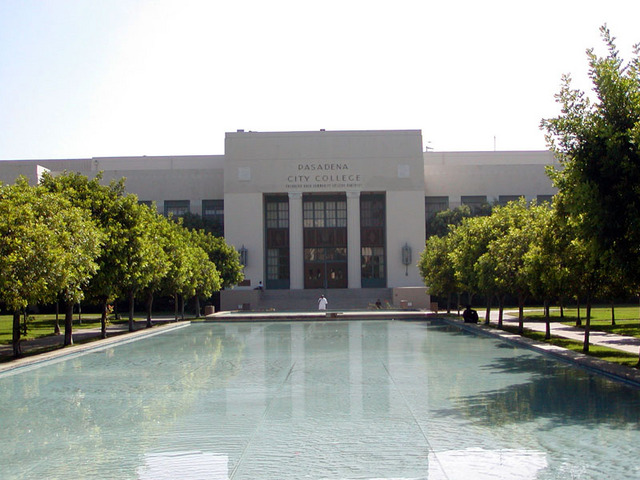

There is no surer way to turn two siblings against each other than to tell both of them they are in charge. That truism is the best explanation for the epidemic of dysfunction at community colleges in California, where conflicting laws mean any disagreement can ignite a war.
It's happening right now at the 30,000-student Pasadena City College, where things have gotten so nasty that the student newspaper asked in a recent editorial: "Were the events of 2012 excessively contentious?"
On the surface, the dispute in Pasadena is over the campus calendar. To create budget flexibility given uncertain revenue, the president and trustees decided in August to cancel a five-week mini-semester scheduled to start in January.
At most other college campuses, a decision like this might be criticized but it would quickly be accepted as reality. People would move on to more pressing matters. At California community colleges, however, any difficult or controversial decision can be turned into a rights violation. Not civil rights, or academic freedom, or collective bargaining, but instead the right of the academic senate, elected by the faculty, to veto decisions made by the college board of trustees, who are elected by the citizens of the community.
Krista Walter, an English professor and union leader, led the campaign against the calendar change. The campus newspaper quoted her on September 20 challenging the legality of the new calendar. A few days later she showed up at an academic senate meeting to declare the violation of state law.
"Calendargate" was on the agenda at the next six meetings of the academic senate. The senators developed a survey to administer to all instructors on campus, asking them to opine on the denial of faculty decision rights. (The responses ranged from "It is time to take back our college from rogue leaders!" to pleas for faculty leaders to "get over it and move on.") Faculty leaders called for a vote of no-confidence in the college president, and when classes started up in January, organized a rally at which faculty accused the president of creating a climate of fear on campus.
No wonder the Pasadena City College student paper had to ask -- why all the nastiness. As it turns out, this mess and similar messes at other California community colleges were predicted. One of the architects of the current community college decision-making structure noticed that the structure tended to lead to conflict rather than to the intended collaboration. He feared his creation "eventually could overwhelm and defeat the purpose of the structure itself."
And that is what is happening. Conflicts that would blow over anywhere else are instead blowing up at community colleges in California. The decision-making regulations act like gasoline thrown on a flame, turning differences of opinion into hostile confrontations over authority. As the Pasadena fight attests, it doesn't even matter whether or not the issue is related to the faculty expertise in their academic disciplines.
The people having these outsized arguments, at Pasadena City College and elsewhere, aren't callous or looking for a fight. The unique California structure itself dehumanizes the participants: "[W]ho trustees and faculty really are," found one researcher, "is lost in a maze of regulations."
While dozens of California community colleges have experienced near-total collapses of collegiality and respect over the past decade, Pasadena City College is fortunately not there yet. To prevent further erosion and waste, California Competes asked the state to revise its regulations so it is clear that faculty committees make recommendations, not decisions. State Chancellor Brice Harris admitted his rules may play a role in colleges' problems, but he refused to make changes. "If an academic senate and a local board of trustees cannot work together amicably," he concluded, "a regulatory change will not improve the relationship."
But there is every reason to believe that changing the regulations would do exactly that.